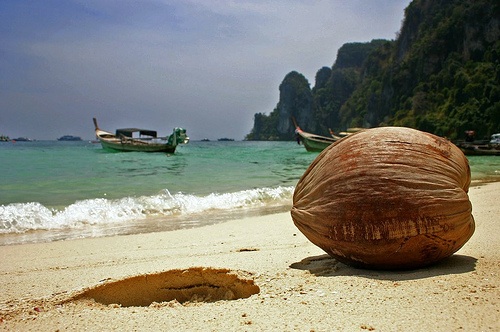 Though Christmas Day is a time to celebrate, the day after – December 26th – holds a very special place in my heart. It’s the day I did not die.
Though Christmas Day is a time to celebrate, the day after – December 26th – holds a very special place in my heart. It’s the day I did not die.
I’m speaking, of course, of the 2004 tsunami which took the lives of nearly a quarter of a million people that day. Though I was on a small island in southern Thailand, I was blessed to not be one of them.
The experience was profound and has had a lasting effect on me, and I appreciate the phone call I get each year from two friends who were with me on the beach that day, commemorating the event.
This year, the call heralded some positive news. Among the coverage of tributes to the tsunami victims around the world, was an uplifting report on the state of some of the coral reefs that had suffered severe damage.
Scientists initially thought it would take at least a decade for the reefs to begin to heal and regenerate, but a study of the reefs released last week shows that some areas of coral reef are rapidly recovering.
The study, done by New York-based Wildlife Conservation Society, included examination of 60 sites on 497 miles of coastline in Indonesia. The WCS reported that some communities have been abandoning destructive fishing techniques and even transplanting corals into damaged areas, which may be a factor in this “great story of ecosystem resilience and recovery”.
This comes as great news as new challenges arise in the age of global climate change, and researchers hope to gain new insights into rapid coral reef recovery as a result.
Photo by Heidi & Matt / creative commons